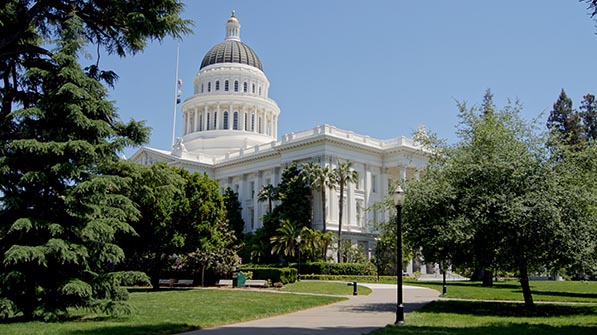On September 30, Governor Gavin Newsom concluded review and action on more than 1,200 bills sent to his desk as part of the 2024 regular legislative session. This year represented many major legislative wins for the California Chamber of Commerce working on behalf of California employers, and I want to thank our members for their partnership in working to secure so many achievements for the business community.
Much of the credit goes to our policy team and other leading business organizations and local chambers who were critical strategic partners, helping us to effectively make the case for business with both legislators and the Governor this year.
PAGA Reform
One of the biggest success stories of 2024 was CalChamber’s efforts to negotiate important reforms to California’s Private Attorneys General Act (PAGA). Alongside a robust coalition of business leaders, including California New Car Dealers Association, California Restaurant Association, California Retailers Association, Western Growers Association, and Airlines for America, CalChamber worked with labor and legislative leadership to forge meaningful change that will improve California’s business climate.
The resulting agreement has been called “monumental,” and Governor Newsom’s signature on the two bills that encompassed the PAGA reform deal represented a successful conclusion to months of hard work and compromise among all parties. The new policies coming out of the reform measures will create more fairness in the process for small businesses and, importantly, incentivize them to understand and comply with labor laws that affect their workforce to the benefit of all.
Governor’s Action on CalChamber Priority Bills
The CalChamber had major success on the artificial intelligence (AI) front as well. Our efforts to fight the most problematic bills that would have stifled California’s innovation economy were largely successful, and a number of AI bills the CalChamber supported were signed into law.
CalChamber helped secure a veto of SB 1047 (Wiener; D-San Francisco), a bill that threatened to shut down the AI economy, as well as urging the Governor to sign CalChamber-sponsored AB 2876 (Berman; D-Palo Alto) on AI literacy.
Our policy team also contributed heavily to forging a compromise on critical goods movement legislation. AB 98 (J. Carrillo; D-Palmdale), signed into law by Governor Newsom, will help California avoid the negative economic and environmental impacts that would have arisen from much more stringent and unworkable legislation while still addressing community concerns. While any bill of this magnitude is expected to have future clean up, the bill will help maintain California’s position as a leader in both economic innovation and environmental stewardship.
A recap of CalChamber’s legislative agenda for 2024 shows that 51 support bills were signed by the Governor, 21 oppose bills vetoed and 30 oppose bills were signed. Of 18 identified CalChamber Job Killer bills in 2024, only one made it to the Governor’s desk. That bill — SB 399 (Wahab; D-Hayward) — was signed by the Governor as expected.
Importantly, overall, the business community fared very well, largely due to strong engagement by CalChamber, allied business groups, our local chamber partners and our advocacy-level member companies.
Major Policy Wins
Here are some major employment-related policy wins brought to you by CalChamber’s policy advocates for 2024:
Privacy
- Vetoed: SB 1047 (Wiener; D-San Francisco) AI Models. Requires frontier AI developers to comply with certain requirements before beginning to initially train specified “covered models” to promote the safe and secure innovation of AI. CalChamber Opposed.
- Stopped/Sent to Senate Inactive File: AB 2930 (Bauer-Kahan; D-Orinda) Automated Decision Tools (ADT) Impact Assessments. Requires developers and deployers of ADTs to perform specified impact assessments prior to first using an ADT and annually thereafter, impacting every industry and businesses of all sizes, in addition to public entities. CalChamber Opposed.
Labor
- Killed: SB 1446 (Smallwood-Cuevas; D-Los Angeles) Use of Technology in Grocery and Retail Stores. Overly prescriptive mandate regarding the use of self-checkout stations that will frustrate customers and increase costs to retailers and requires stores to notify all workers and the public any time they choose to utilize new technology. CalChamber Opposed.
- Killed: SB 1345 (Smallwood-Cuevas; D-Los Angeles) Prohibits Consideration of Conviction History in Employment. Effectively prohibits most employers from considering conviction history of an applicant, existing employee, or contractor in employment or contracting decisions. CalChamber Opposed/Job Killer 2024.
Unemployment Insurance Expansion
- Killed: SB 1434 (Durazo; D-Los Angeles) Huge Increases to Unemployment Insurance Taxes. Increases UI taxes to fund UI benefit hikes of up to 55%, as well as providing for subsequent increases based on inflation. Also creates entirely new UI program to provide benefits to workers who do not qualify for traditional UI, to be funded by a new tax on California employers. CalChamber Opposed/Job Killer 2024.
- Killed: SB 1116 (Portantino; D-Burbank) Increased Unemployment Insurance Taxes to Subsidize Striking Workers. Allows striking workers to claim UI benefits when they choose to strike. Because the UI Fund is paid for entirely by employers, SB 1116 will effectively add more debt onto California employers. Moreover, SB 1116 will effectively force employers to subsidize strikes at completely unrelated businesses because the UI Fund’s debt adds taxes for all employers, regardless of whether they’ve had a strike. CalChamber Opposed/Job Killer 2024.
Read more about other policywins — like water, tax, environmental policy, housing and health care — in CalChamber’s Top Story.
Jennifer Barrera, President and CEO, California Chamber of Commerce
Take advantage of CalChamber’s PAGA Wage and Hour Compliance toolkit to help execute reasonable steps and take full advantage of all the new employer-friendly changes to PAGA.

